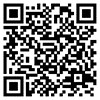Experts stress role of critical thinking in education

As artificial intelligence rapidly transforms education and the workplace, college students must master new skills to thrive in a world increasingly driven by intelligent machines, experts said on Thursday during the ongoing 2025 World Digital Education Conference in Wuhan, Hubei province.
Jacques Fremont, president and vice-chancellor of the University of Ottawa, called AI a "double-edged sword" that challenges educators to ensure students retain the ability to think independently.
"If people stop thinking for themselves and always rely on machine-generated knowledge, they will not learn how to think," he said.
Fremont emphasized the importance of critical thinking and valuing information integrity.
"They need to assess the quality and veracity of the information generated by AI tools," he said, adding that students' autonomous judgment will be key to the future of education and science.
John Hopcroft, a Turing Award laureate and professor emeritus at Cornell University, said education systems must adapt to a future in which automation may replace many jobs.
"We are entering an information age where only a small fraction of the population may be needed to produce goods and services," he said.
Hopcroft said education must focus on producing quality talent capable of transitioning into the era of intelligence. He cited "educability" — the uniquely human capacity to learn and evolve — as a core advantage over other species.
"Helping students discover what they enjoy and encouraging them to pursue it will be critical," he said.
Zhang Pingwen, an academician with the Chinese Academy of Sciences and president of Wuhan University, stressed the importance of building digital capabilities.
"With powerful new tools, what matters most is how well students can use them," Zhang said. "Data is only valuable in the hands of those with the skills to apply it. Otherwise, it becomes a burden."
He said universities must go beyond traditional knowledge transmission to prioritize the cultivation of values, problem-solving abilities and digital literacy.
"How students formulate questions when using AI tools is itself a deep skill," Zhang said. "Education must keep pace with new technologies."
China's Education Minister Huai Jinpeng, in a keynote speech at the conference, said it is essential to guide students in the responsible use of AI.
"We need to promote the integration of AI courses across primary, secondary and higher education, and accelerate the development of core AI textbooks and learning resources," Huai said.
He also called for strengthening the regulatory framework around AI tools to ensure data security and personal privacy, while effectively preventing misinformation, algorithmic bias and AI hallucinations.

- Xi stresses strategic importance of work to raise minors' moral standards
- Verdict on Jimmy Lai is reached strictly in accordance with law and evidence: HKSAR govt
- Taiwan's Lai Ching-te slammed for selling war anxiety
- US urged to recalibrate its strategic perception of China
- International volunteers participate in blood donation event in Shanghai
- Wellington College China leads dialogue on collaborative education for the future




































